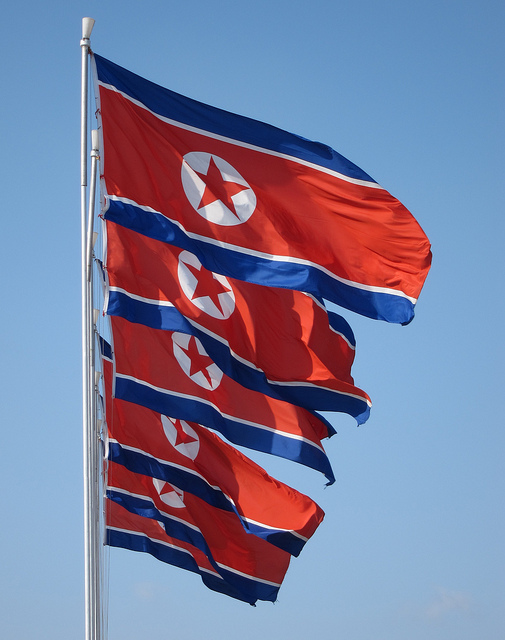World News
UN experts: North Korea flouts UN sanctions earning millions

The experts said Pyongyang is still able to access the global financial system through “deceptive practices combined with critical deficiencies in the implementation of financial sanctions.” (Photo by John Pavelka/Flickr, CC BY 2.0)
North Korea is flouting U.N. sanctions on oil and gas, engaging in prohibited ballistic missile co-operation with Syria and Myanmar, and illegally exporting commodities that brought in nearly $200 million in just nine months last year, according to U.N. experts.
The experts said Pyongyang is still able to access the global financial system through “deceptive practices combined with critical deficiencies in the implementation of financial sanctions.”
And it continues to engage in “widespread conventional arms deals and cyber operations to steal military secrets,” the panel said.
The experts report to the U.N. Security Council, obtained Friday by The Associated Press, said North Korean diplomats “continue to play a key role in the country’s prohibited programs.”
The council has imposed increasingly tougher sanctions against North Korea in response to its nuclear and ballistic missile tests. The latest resolution in December in response to the launch of a ballistic missile that Pyongyang says is capable of reaching anywhere on the U.S. mainland sharply lowered limits on North Korea’s refined oil imports and authorized the inspection and seizure of ships suspected of smuggling banned items including coal and oil to and from the country.
U.S. Ambassador Nikki Haley said sanctions now ban well over 90 per cent of North Korea’s exports reported in 2016.
But the panel of experts said the expansion of U.N. sanctions hasn’t been matched by the “political will,” international co-ordination, and allocation of resources to implement them.
“This year could represent a critical window of opportunity before a potential miscalculation with disastrous implications for international peace and security,” the experts said.
According to the report, the panel investigated North Korea’s ongoing ballistic missile co-operation with Syria and Myanmar.
It also investigated illegal ship-to-ship transfers of oil “comprising a multimillion-dollar business that is driving an international network of brokers and ship charterers as well as unwitting global commodity trading companies and oil suppliers.”
North Korea also continued its illegal coal exports by combining deceptive navigation patterns, trans-shipment through third countries and fraudulent documentation “to obscure the origin of the coal.”
The report said North Korea exported coal to China, Malaysia, South Korea, Russia and Vietnam in 2017 in violation of sanctions.
It said “a network of foreign traders responsible for violations of the coal ban operates through numerous front companies” registered in Australia, British Virgin Islands, China, Hong Kong, Marshall Islands, Samoa, Seychelles and the United Kingdom.
The experts said North Korea also exported $125 million of iron ore to China last year in violation of sanctions.
The Security Council has slapped sanctions on seven vessels for illegally transferring coal and petroleum. The panel said stepped-up efforts are “crucial to curb these rampant illicit activities.”
The experts also cited “critical deficiencies” in implementing financial sanctions.
North Korean financial institutions, including banks which have been sanctions by the council, “maintain more than 30 overseas representatives who live and move freely across borders in the Middle East and Asia, where they control bank accounts, facilitate transactions and deal in bulk cash,” the report said.
The experts said North Korea is also exploiting “a key vulnerability” which has enabled the country “to easily create front companies offshore in Asian financial centres where they leverage assistance” from other nationals and use the firms to open accounts and move money worldwide.
The panel said its investigations highlight the activity of intelligence agents and other individuals acting on behalf of sanctioned North Korean entities who operate bank accounts in Europe and the Asia-Pacific “and use diplomatic passports and diplomatic-plated cars to cross land and air borders with less scrutiny.”





















